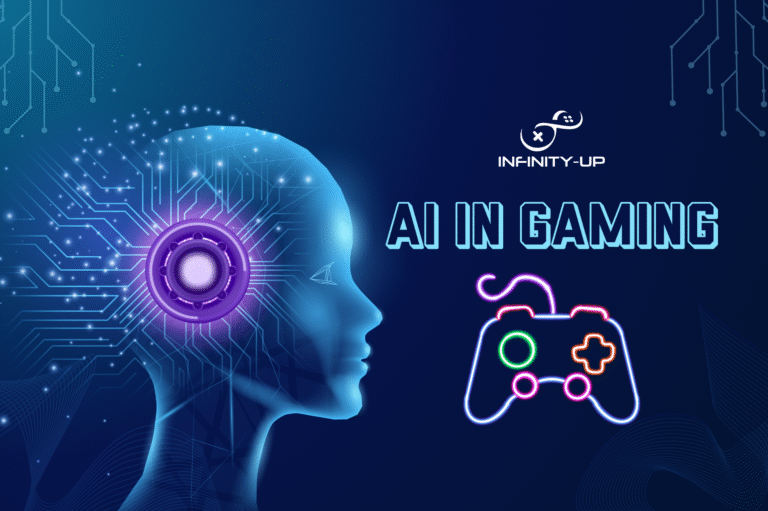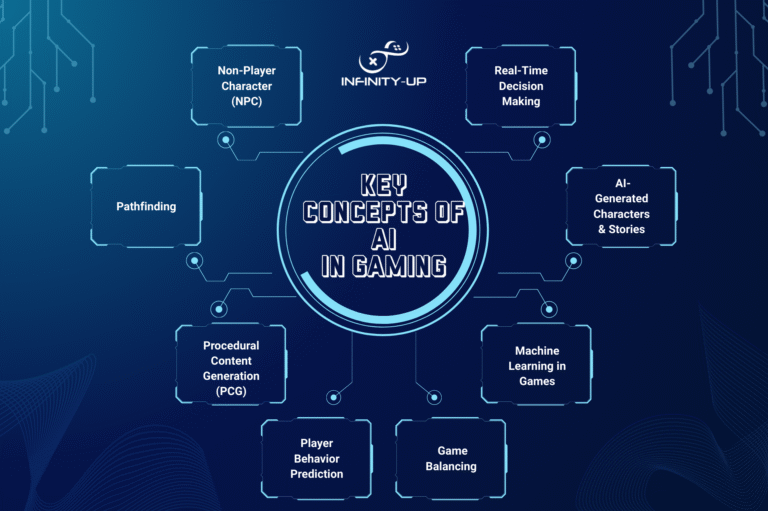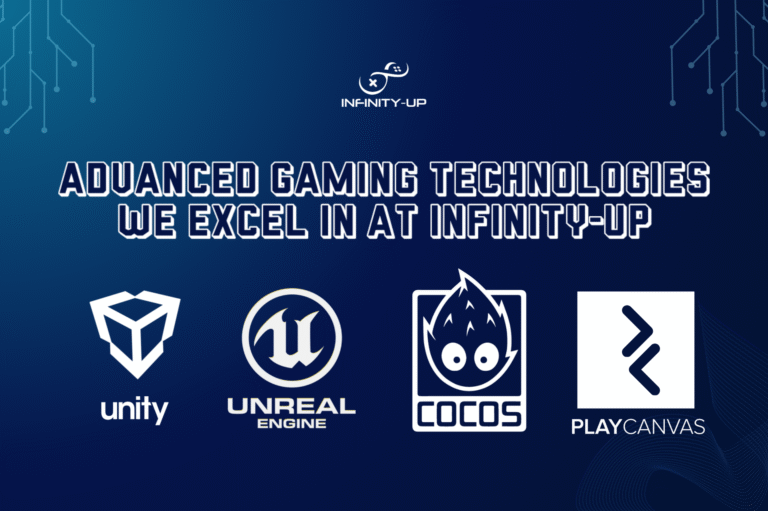Impact of Artificial Intelligence in Gaming
Impact of Artificial Intelligence in Gaming
The gaming industry has seen remarkable growth over the past few decades, progressing from basic 8-bit games to richly detailed, engaging worlds driven by advanced technology. Among the most significant developments has been the emergence of artificial intelligence (AI), especially AI agents. These agents, designed to mimic human decision-making, are revolutionizing the way games are developed, played, and experienced, making gameplay more dynamic, interactive, and tailored to individual players.
In this blog, we’ll dive into how AI is reshaping the gaming industry, explore the reasons traditional game development methods are being replaced, and uncover how AI agents significantly enhance gaming experiences across multiple levels. Moreover, we’ll highlight key innovations and what they mean for the future of interactive entertainment.

What is AI in Gaming
Artificial Intelligence (AI) in gaming refers to the use of machine learning algorithms, neural networks, and decision-making systems to create smarter, more responsive, and adaptive in-game behaviors. It powers non-player characters (NPCs), individualizes gameplay, and enhances overall game mechanics to deliver more engaging and realistic experiences. From predicting player actions to generating content and designing intelligent opponents, AI plays a crucial role in elevating both the technical and creative aspects of modern games.
Key Concepts of AI in Gaming
1. Non-Player Character (NPC):
NPCs are characters controlled by AI rather than players. They interact with the game environment and respond to player actions, creating more engaging and dynamic gameplay.
2. Pathfinding:
Pathfinding is the AI technique that enables characters to navigate the game world efficiently. It helps them find the shortest or most logical route while avoiding obstacles.
3. Procedural Content Generation (PCG):
PCG uses algorithms to automatically create game content like levels, maps, or quests. This allows for endless variation and replayability without manual design.
4. Player Behavior Prediction:
This AI concept analyzes how players interact with the game to anticipate their actions. It helps tailor gameplay experiences, adjust difficulty, or suggest in-game strategies.
5. Game Balancing:
Game balancing uses AI to adjust the difficulty and pacing of a game based on player performance. This ensures the game remains challenging yet fair for all skill levels.
6. Machine Learning in Games:
Machine learning allows AI to learn from player data and improve over time. It helps create smarter opponents, customized gameplay, and adaptive in-game systems.
7. AI-Generated Characters & Stories:
AI can create dynamic characters and storylines that evolve based on player choices. This makes narratives more interactive and unique for each gameplay experience.
8. Real-Time Decision Making:
This concept enables AI to react instantly to player actions during gameplay. It creates more responsive and lifelike interactions with enemies, allies, and the game environment.

Innovating Graphics and Gameplay with AI
Innovating graphics and gameplay with AI involves leveraging artificial intelligence to enhance both the visual quality and interactive depth of games.
On the graphics side, AI enables real-time rendering enhancements, procedural generation of environments, AI-driven Animation in Video Games, and upscaling of textures, resulting in more realistic and captivating worlds without demanding excessive manual work from artists.
In gameplay, AI powers smarter and more adaptive non-player characters (NPCs), dynamic difficulty adjustment, and personalized game experiences based on player behavior. Machine learning algorithms analyze player patterns to tailor challenges, narratives, or environments in real time, making each gaming session more engaging.
Check out this casual game on iOS & Android.
Overall, AI transforms how games are designed, experienced, and evolved, pushing the boundaries of creativity and interactivity.
Advanced Gaming Technologies We Excel In at INFINITY-UP
At INFINITY-UP, we leverage cutting-edge technologies to craft innovative, engaging, and scalable gaming solutions. Our expertise spans across the most impactful tools and platforms shaping the future of gaming:
Game Engines:
We specialize in leading engines like Unity and Unreal Engine, utilizing their advanced capabilities for real-time rendering, physics simulations, and cross-platform support, to build high-quality, interactive games.
Cloud Gaming:
Our team develops optimized games for Cloud Platforms, enabling seamless gameplay experiences on services like Amazon Luna, Xbox Cloud Gaming, and GeForce Now, without relying on high-end hardware.
Virtual Reality (VR) and Augmented Reality (AR):
INFINITY-UP creates engaging VR and AR gaming experiences that blend real and virtual worlds, ideal for education, training, entertainment, and more.
Blockchain and NFTs:
We integrate blockchain technology into our games, offering features like true asset ownership, NFT-based collectibles, and decentralized economies that enhance player engagement and monetization.
AI and Machine Learning:
Our AI-driven systems enable smarter NPCs, procedural content generation, and adaptive gameplay. We use machine learning to create personalized, dynamic game experiences tailored to each player’s behavior.

Conclusion
Artificial Intelligence is transforming the gaming landscape, making it smarter, more adaptive, and visually stunning. From intelligent NPCs to personalized gameplay, AI is driving the future of game development. At INFINITY-UP, we lead this evolution by integrating advanced AI and machine learning to deliver next-gen gaming experiences. As the industry continues to evolve, now is the time to embrace the AI-powered future of gaming.
FAQ
Q1: What are the challenges of implementing AI in games?
Answer: AI in games poses challenges like high computational demands, unpredictable behavior, and limited emotional creativity. Balancing smart yet enjoyable gameplay is challenging, and ethical concerns about cost make adoption even harder for smaller studios.
Q2: Can AI learn from players?
Answer: Yes, AI can use machine learning to analyze player behavior and adapt strategies, environments, or challenges based on individual player patterns and preferences.
Q3: What are the common applications of AI in games?
Answer: Common uses include NPC behavior design, enemy pathfinding, procedural content generation (PCG), dynamic game difficulty balancing, voice recognition, and recommendation systems.
Q4: Are AI-powered games more difficult?
Answer: Not necessarily. AI allows for dynamic difficulty adjustment, meaning the game can become easier or harder based on the player’s skill level to keep the experience engaging.
Q5: Is AI replacing human developers or designers?
Answer: No, AI is a tool that supports and augments human creativity and productivity. Designers still play a key role in creating compelling stories, aesthetics, and gameplay logic.

